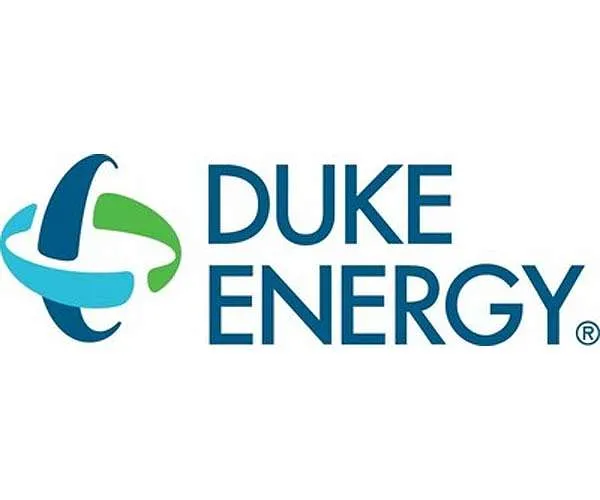Duke Energy to provide solar access to consumers while reducing costs in time
- Duke Energy Florida (DEF) has actually filed a proposed brand-new Clean Energy Connection (CEC) Program with the Florida Public Service Commission. The news is the current improvement in Duke Energy's dedication to solar power.

If approved by the payment, the program will certainly give Duke Energy Florida consumers with about 750 megawatts (MW) of new, affordable solar energy - supplying more alternatives for qualified residential, company and also local government consumers to cooperate a piece of the firm's solar power manufacturing on a voluntary basis.
Duke Energy prepares to invest an approximated $1 billion in its new solar power plants across Florida in the next three years. The very first plants will certainly go on the internet in 2022 and even more will certainly follow up 2024.
" The Clean Energy Connection Program is delivering on what our consumers desire - budget-friendly clean energy options. It will be a quantifiable way for customers to cooperate reducing carbon emissions," stated Catherine Stempien, Duke Energy Florida state president.
" We know that larger-scale solar is the most affordable way to get the benefits of solar on our entire system as well as this program gives consumers, particularly those who might not have the capacity to set up solar in your home, an engaging option to roof panels."
The program directly sustains the growth and also building and construction of brand-new economical, utility-owned, solar energy plants interconnected to the Florida power grid.
" We value Duke Energy's growth of the CEC program, which is another step in the best instructions. Our initial subscription represents our dedication to collaborate with DEF as well as others in the state for much more ambitious renewable energy goals and a simply change to clean energy," stated St. Petersburg Mayor Rick Kriseman.
Exactly how the program works
Customers can subscribe to kilowatt blocks of solar energy from the company's Clean Energy Connection solar profile. The month-to-month membership charge will aid spend for the expense of construction as well as procedure of the solar power plants and is conveniently added to a customer's regular electric bill.
Getting involved clients can subscribe to blocks of solar generation comparable to 1 kilowatt (kW) of solar power per block as well as obtain expense credit histories based upon their subscription dimension as well as the solar power that is generated by the Clean Energy Connection solar facilities every month.
The regular monthly registration charge is repaired at $8.35 per kW. A customer with typical use of 1,000 kWh/month would certainly require to sign up for approximately 5 kW to cover their complete use. Customers get costs debts based on their registration dimension and the solar energy that is produced by the Clean Energy Connection solar facilities each month.
The bill credit history rate for the first 36 months of the program involvement will certainly be 4 cents per kWh (kilowatt-hour), after that the costs credit score rate increases by 1.5% each year. The bill credit scores amount varies each month with the actual solar energy created, where it may be higher during the months with more straight sunlight.
For a residential client subscribing to a 5-kW block, the month-to-month influence will vary, but the internet annual impact in year one is approximated to be a cost of concerning $6. Beginning in year five, the yearly expense credit scores is approximated to surpass the subscription fee. By year 7, client credit ratings are anticipated to exceed the fees paid to day for the program.
The program reserves 26 MW for low-income consumers that join federal government subsidy programs or Duke Energy Florida's low-income energy efficiency program.
With program enrollment, low-income consumers will see guaranteed savings on their bill monthly. These clients will pay an $8.35 monthly per kW subscription charge as well as obtain a $9.03 monthly per kW costs debt, creating a financial savings of 68 cents for each kW subscribed. In this situation, a low-income consumer signing up for a 3-kW block will save $2.04 monthly, or $24.48 annually.
The Clean Energy Connection Program is designed to use inexpensive universal DEF solar facilities while supplying solar energy efficiently to as well as for the benefit of all of our consumers.
It is also made to supply participating customers with a seven-year full payback, with costs credit ratings first exceeding subscription costs around 3 to 5 years. As long as the customer continues to be in the program for 7 years, the yearly costs credit histories are forecasted to be greater than the membership prices, creating real consumer costs savings.
"Duke Energy's Clean Energy Connection Program aligns well with Mosaic's dedications to ecological sustainability. We praise Duke Energy for this innovative technique to increasing making use of renewable energy sources," claimed Mosaic Senior Vice President, Government and Public Affairs Ben Pratt.
Consumers can ask for to counter 100% of their power use with solar by subscribing to adequate blocks of solar power to match the customer's yearly energy use.
If authorized by the Florida Public Service Commission, the program will open up to residential and local business for registration in 2021 with the program beginning to generate power at the start of 2022.
Consumers who are interested in joining the program can learn more with the Clean Energy Connection internet site.
Duke Energy Florida stays a leader ahead of time clean energy in the state. It has installed more than 1 million solar panels in Florida as well as the Clean Energy Connection Program will support this continued success.
DEF presently has more than 500 MW of solar generation under construction or in operation as the company remains to construct or acquire an overall of 700 MW of solar energy facilities in Florida from 2018 with 2022.
Also read

